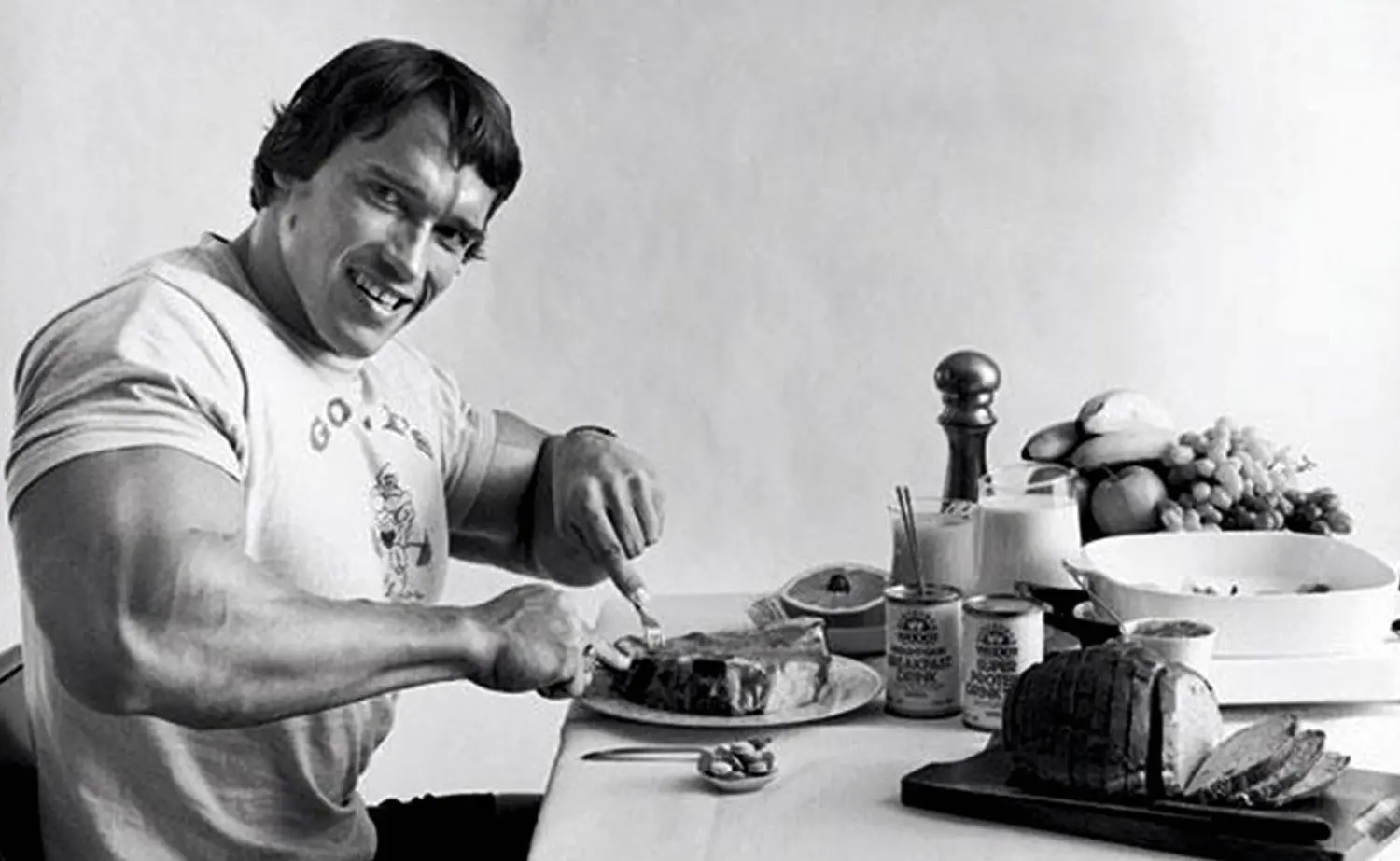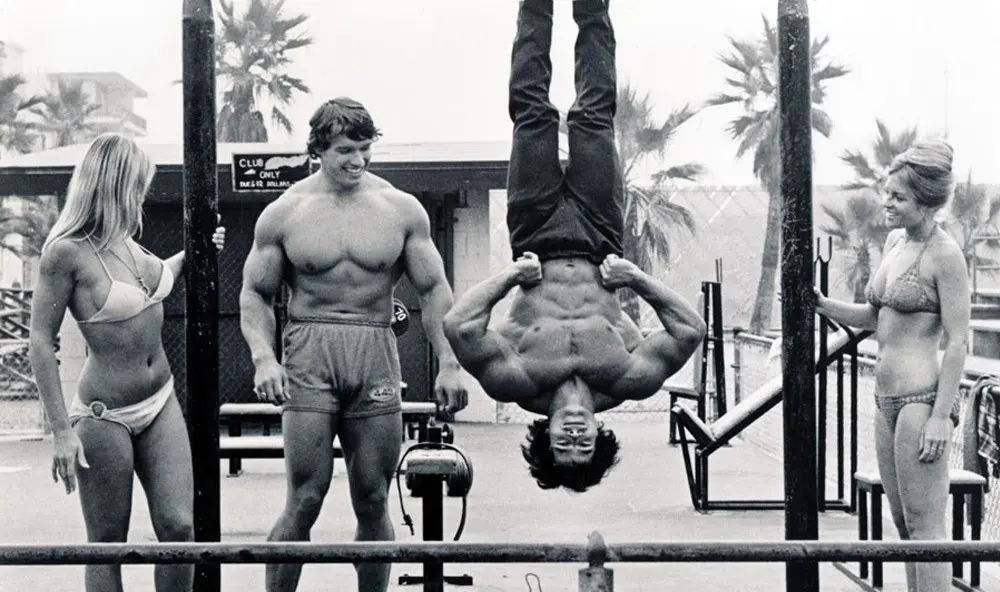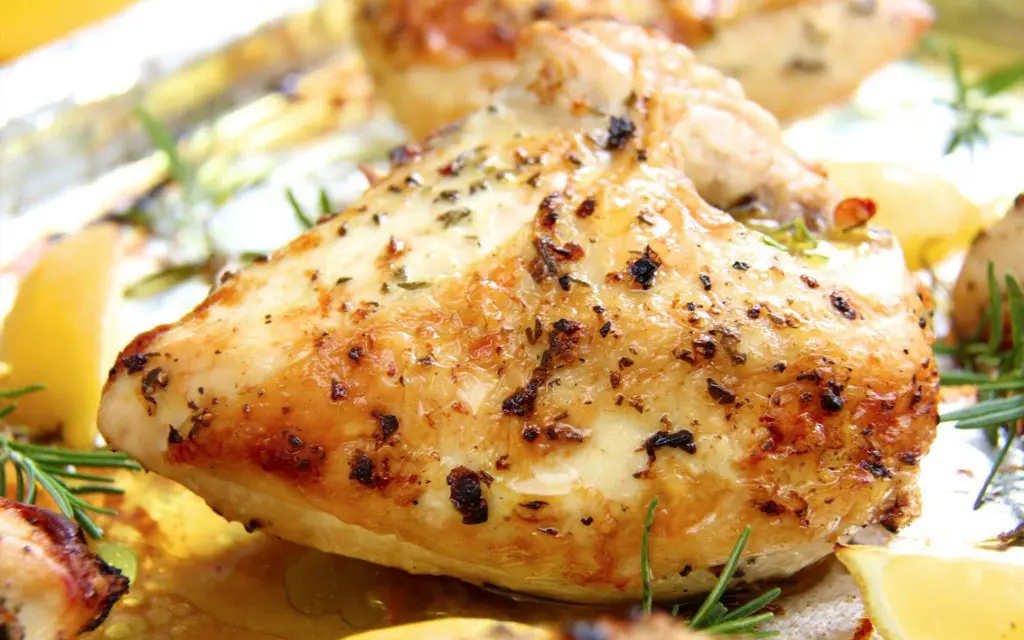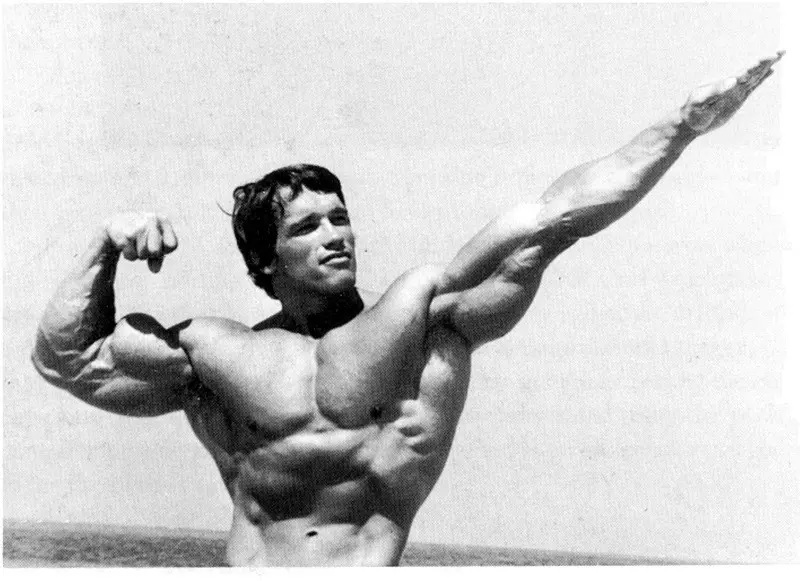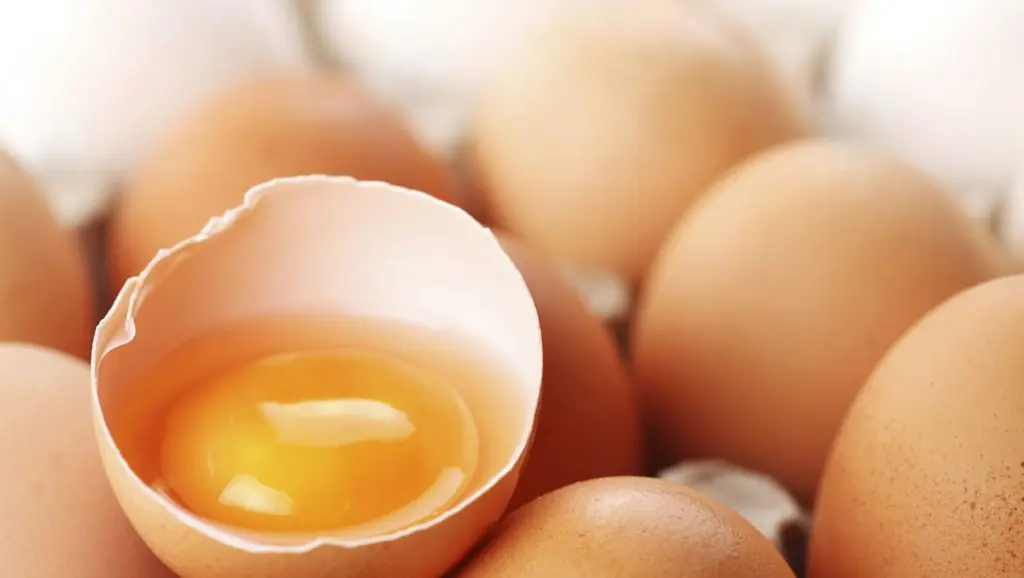Ever wondered what Arnold ate to build one of the most recognizable bodies in the world? Here, The Oak shares 12 of his core nutrition philosophies!
No one has a louder voice when it comes to all things bodybuilding than Arnold Schwarzenegger. Holder of seven Mr. Olympia titles and a host of bodybuilding’s biggest weekend sports festival that’s now a runaway success on four continents, The Oak has also penned a number of hugely popular books and articles on training. But his approach to performance nutrition is less well known.
Arnold has a lot of timeless advice for anyone looking to step on stage, get ripped, or build muscle. Below, The Oak himself shares 13 nutrition tips that are as relevant today as they were nearly four decades ago when he built the world’s best and most famous physique.
#1. Up Your Nutrition Knowledge
While many lifters critically consider training philosophies and techniques, the study of nutritional principles gets far less attention, so dietary practices often hold a bodybuilder back from his true potential.
As I stated in the “New Encyclopedia of Modern Bodybuilding,” a book I wrote nearly two decades ago, the basic principles of nutrition are as valuable to a bodybuilder as the basic concepts of training.
The most successful bodybuilders are those who study and understand nutrition and actively seek out cutting-edge information. Sure, there’s a lot of information—and misinformation—on the subject, but a solid understanding of nutritional science will help you better identify BS when you see it.
Let me be crystal clear: If you want to succeed as a bodybuilder, invest in learning as much as you can, and even consider taking a college-level nutrition class.
#2. Prioritize Protein
The importance of protein for a hard-training lifter can’t be overstated. Everything I ate as a competitor was geared first and foremost to how much protein it had. My diet was based less on what I was hungry for and more on ensuring I met my daily protein requirements.
“There’s always a debate about how much protein the body actually needs, I always lived off the rule that for every pound of bodyweight, I needed one gram of protein.”
Steak, chicken, fish, eggs and dairy were the main whole-food choices I consumed—all sources of complete protein containing all the essential amino acids—and, unsurprisingly, these remain the best foods to build muscle today.
#3. Calculate Your Protein Intake
The rule of thumb I go by when talking about protein intake is to eat 1 gram of protein per pound of body weight daily. I’ve seen reports that suggest you need less (usually based on non-training individuals) and anecdotal evidence of bodybuilders who consume a lot more. But the single most important reason I prefer the 1 gram for pound rule is its simplicity.
With this method, it’s easy to compute how much protein you need daily and at each meal. The amount you come up with ensures you have the amino acids necessary for repairing and building muscle. Don’t take away any protein when on a cut. If anything, add a little more daily to ensure you retain your hard-earned muscle mass in a caloric deficit!
#4. Don’t Trash Your Yolks
For many years, bodybuilders discarded egg yolks because of concerns about saturated fats and cholesterol. If you’re trying to lose body fat, or have high levels of LDL or total cholesterol, such concerns might be warranted. However, the yolk contains almost as much protein as the egg white, as well as a majority of an egg’s vitamins and minerals.
If you’re concerned about limiting fat in your diet, my suggestion is to do so by eliminating other foods rather than discarding the best part of the egg. Eggs, in fact, are one of the highest-quality protein sources around—well above poultry, fish, and even meat.
#5. Don’t Fall For Fat-free
A few years back, reducing dietary fat was popular in American culture—it became a villain as obesity rates began to rise. At the time, “fat-free” products became increasingly marketed to consumers, many of whom didn’t notice the products were often loaded with sugar instead. Too much dietary fat can be problematic, given that fat contains 9 calories per gram, but reducing your fat intake to an extreme level can have negative repercussions.
Dietary saturated fat is necessary for your body to create testosterone, which you don’t want to hamper if building muscle, exercise recovery, and even fat loss are among your goals. Any efforts to drastically eliminate what was once mistakenly considered a bad guy can actually have negative repercussions on your muscle-building efforts, so don’t buy into fat-free.
A good rule of thumb: Get about 10-15 percent of your daily calories from saturated fat sources, including beef, poultry, dairy, and eggs.
#6. Supplement With Protein
The quality of protein supplements in my competitive years was about what you’d get with nonfat dried powdered milk, which, all things considered, wasn’t too bad and fairly convenient. When I was 15, I even combined skim-milk powder, eggs, and honey with water in a Thermos. But advances in technology have isolated whey and broken it down into faster-digesting individual components that make today’s protein powders infinitely superior to what we were using a few decades ago.
I’ve always said that protein powders are most useful for bodybuilders who don’t have the time to prepare complete whole-food meals or snacks over the course of their 5-7 meals a day. This— not to mention the fact that whey is also an incredibly high-quality protein source, right up there with eggs—makes having a shaker and quality protein supplement on hand the single best nutrition investment you can make.
Continued on the next page…
Tip: If you're signed in to Google, tap Follow.


